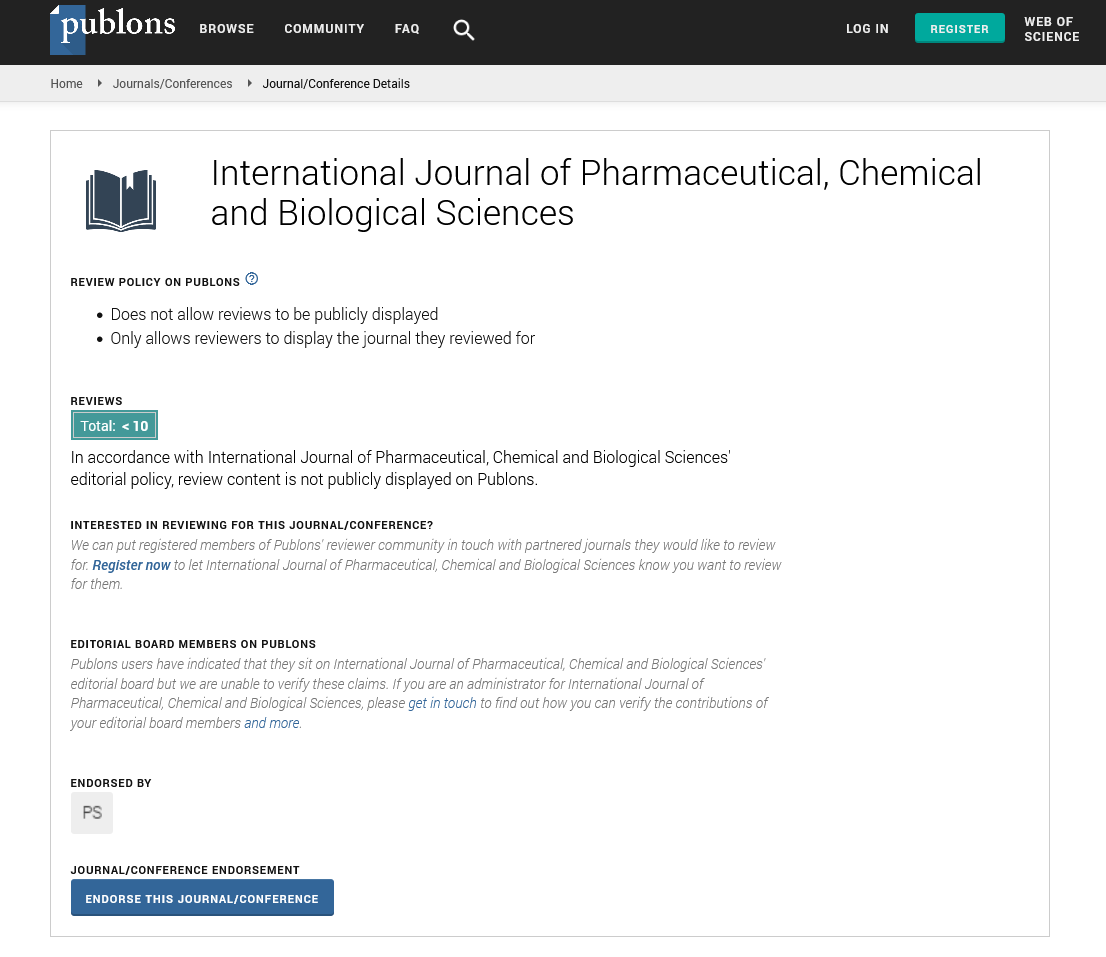Commentary - International Journal of Pharmaceutical, Chemical and Biological Sciences ( 2023) Volume 13, Issue 3
Phytochemistry: Unveiling the Medicinal Secrets of Plants
Zoue Ling*Zoue Ling, Department of Basic Medical Sciences, Chengdu University, China,
Received: 30-Aug-2023, Manuscript No. ijpcbs-23-113688; Editor assigned: 01-Sep-2023, Pre QC No. ijpcbs-23-113688 (PQ); Reviewed: 15-Sep-2023, QC No. ijpcbs-23-113688; Revised: 20-Sep-2023, Manuscript No. ijpcbs-23-113688 (R); Published: 27-Sep-2023, DOI: DOI: 10.36648/2471-9668-13.3.1
Introduction
Phytochemistry, at the intersection of chemistry, biology, and botany, is the scientific discipline that explores the complex chemical compounds produced by plants. These compounds, known as phytochemicals, play a vital role in plant defense, communication, and adaptation. Moreover, they have been a source of essential medicines, nutritional supplements, and countless other products beneficial to humans. In this comprehensive article, we embark on a journey into the captivating world of phytochemistry, delving into its historical roots, the diversity of phytochemicals, their roles in plants and human health, modern research techniques, and the promising future of this interdisciplinary field. The use of plants for medicinal purposes dates back to ancient civilizations like the Egyptians, Greeks, and Chinese, who recorded herbal remedies. The 19th century saw the emergence of modern phytochemistry, with the isolation and characterization of plant compounds like quinine and morphine. These nitrogen-containing compounds, found in plants like the opium poppy and cinchona tree, have potent physiological effects and are the basis for numerous pharmaceuticals. Terpenes contribute to the aroma and flavor of plants and have medicinal properties. They include essential oils, such as those found in lavender and eucalyptus. Phenolic compounds like flavonoids and tannins are potent antioxidants found in fruits, vegetables, and tea, offering health benefits.
Description
Phytochemicals serve as natural pesticides, protecting plants from herbivores and pathogens. Plants use phytochemicals for communication, such as attracting pollinators or deterring competitors. Phytochemicals help plants adapt to environmental stressors like UV radiation and extreme temperatures. Phytochemicals have been integral to traditional medicine systems worldwide, offering treatments for various ailments. Many pharmaceutical drugs, such as aspirin and paclitaxel, are derived from or inspired by phytochemicals. Phytochemical-rich foods and dietary supplements offer potential health benefits, including antioxidant and anti-inflammatory effects. Phytochemicals like resveratrol and curcumin show promise in cancer prevention and treatment. High-Performance Liquid Chromatography (HPLC) and Gas Chromatography (GC) are essential for separating and analyzing phytochemicals. Techniques like Nuclear Magnetic Resonance (NMR) and Mass Spectrometry (MS) are used for structural elucidation. Metabolomics allows the comprehensive study of all the small molecules in a plant, shedding light on its biochemistry. Computational tools aid in the prediction and analysis of phytochemicals’ biological activities.
Conclusion
Phytochemistry is a captivating and interdisciplinary field that explores the chemical treasures hidden within the plant kingdom. It has deep historical roots, extending from ancient herbal traditions to the forefront of modern medicine and research. The diverse array of phytochemicals found in plants offers not only a source of natural beauty and wonder but also a wealth of potential therapies for human health and well-being. As we advance into the future, phytochemistry continues to evolve, promising groundbreaking discoveries in drug development, personalized medicine, and sustainable agriculture. It exemplifies the profound interconnectedness of nature and human health, demonstrating that the remedies for some of our most pressing health challenges may be found in the leaves, roots, and flowers of the world’s botanical wonders.
Acknowledgement
None.
Conflict Of Interest
None.

